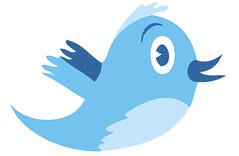People continually say to me that they don’t get Twitter, the microblogging service that integrates with Google Talk, amongst other things. “No-one needs to know I’m having a cheese sandwich for lunch,” they say.
Well, they’re right. No-one does need to know you had a cheese sandwich for lunch. But Twitter brings usefulness and joy to me in a number of ways.
1) With my friends/personal contacts, I catch little snippets and insights into their days. Great for pub chat later, as you have immediate, real, interesting things to say to them beyond “how was your day” or “how was work”. Knowing that people are working on specific projects, or have been reading certain things etc., is a nice enhancement to the relationship.
2) For keeping in touch with several of the journalists I work with (Chris, Simon, Sally’s ‘Getting Ink Requests‘ blog & others), it has great moments. For a PR professional, knowing people are writing about things, thinking about things, or just some context about them helps when you pick up the phone and pitch them stories. I have no doubt there are parallels for this kind of usefulness in other industries.
3) On a more practical level, it’s a great, great way for polling interests, opinions, and the knowledge of a large number of people in a short time. Dennis, Mike, Hugh, Drew & others do this with great frequency. Even people who are relatively new to the medium are getting into it.
4) I get breaking news faster than my RSS feedreader can bring it to me.
The third element here is probably the most useful. Group IM for polling knowledge has huge potential, in business and personal life both. If Twitter extends its functionality such that you can group contacts and ping people with specific expertise/relationship to you on a specific front, that would be fantastic. Think messages like “@friends Anyone for the pub tonight?” or “@workcontacts Anyone know why Microsoft doesn’t support Silverlight on Windows Mobile yet?” or… whatever. It has cool potential.
I have two frustrations with Twitter (not including my issues with the various client applications I’ve tried, none of which is adequate, and the frequent downtime the service has). First, I don’t understand the “friend whores.” I’ve just been added by someone into Semi-Professional American football, following over 2,000 people with only a third as many followers. Why?
Second, I simply don’t have enough of my friends and contacts on it. If I had more of the people I actually speak to in real life, it’d be more useful as a service.
I get great links, insight and have useful conversations on Twitter. And I learn what (a couple of my friends) have for lunch. It’s all good.

